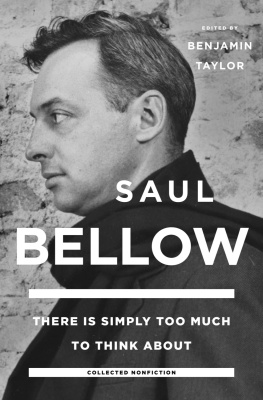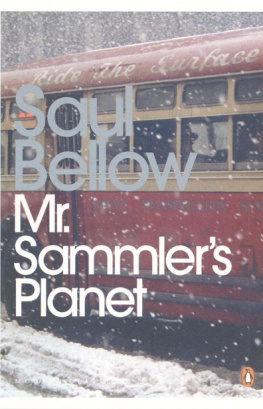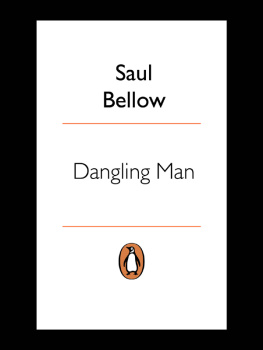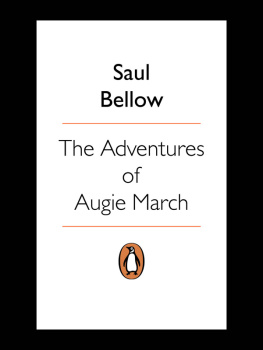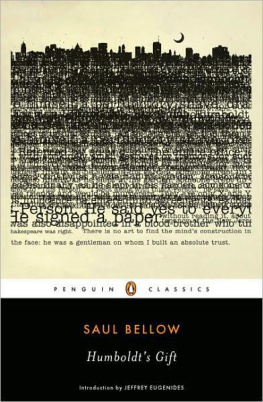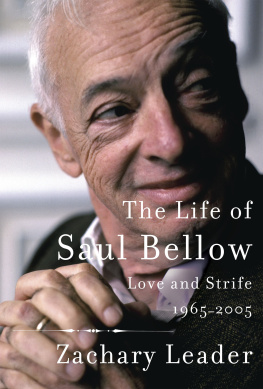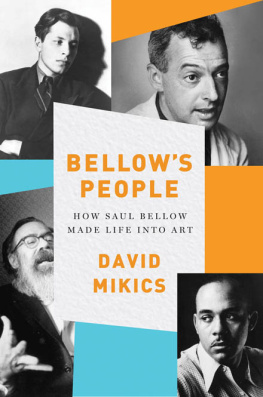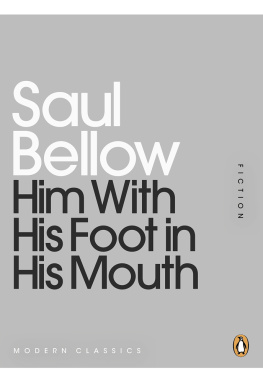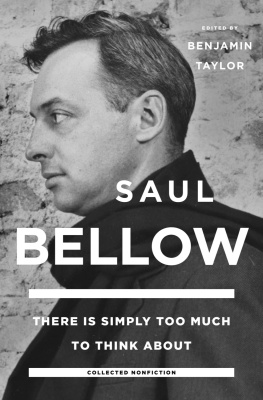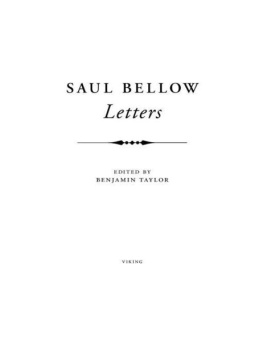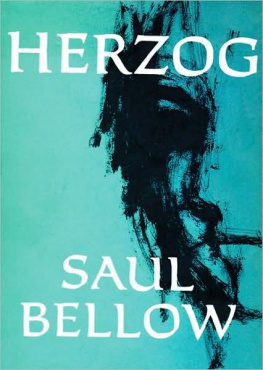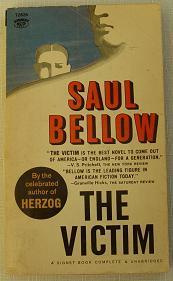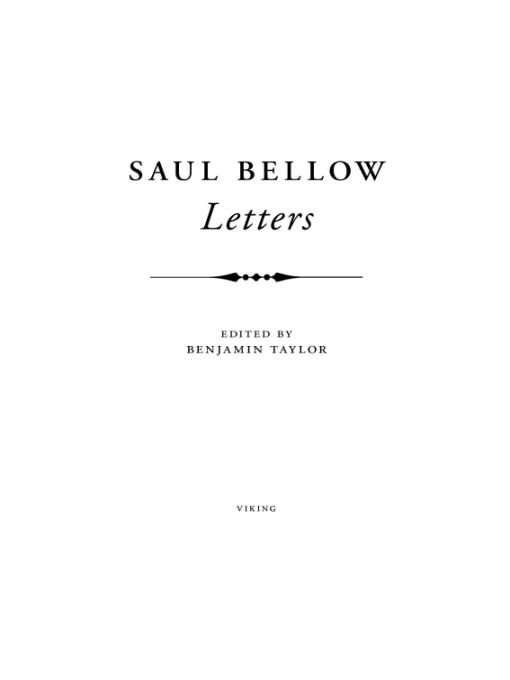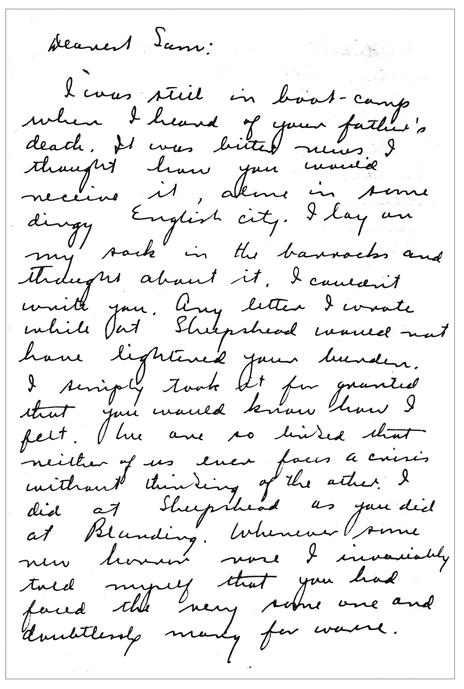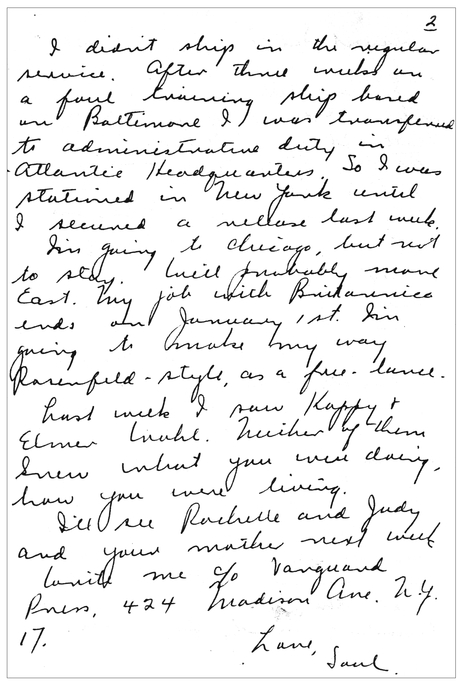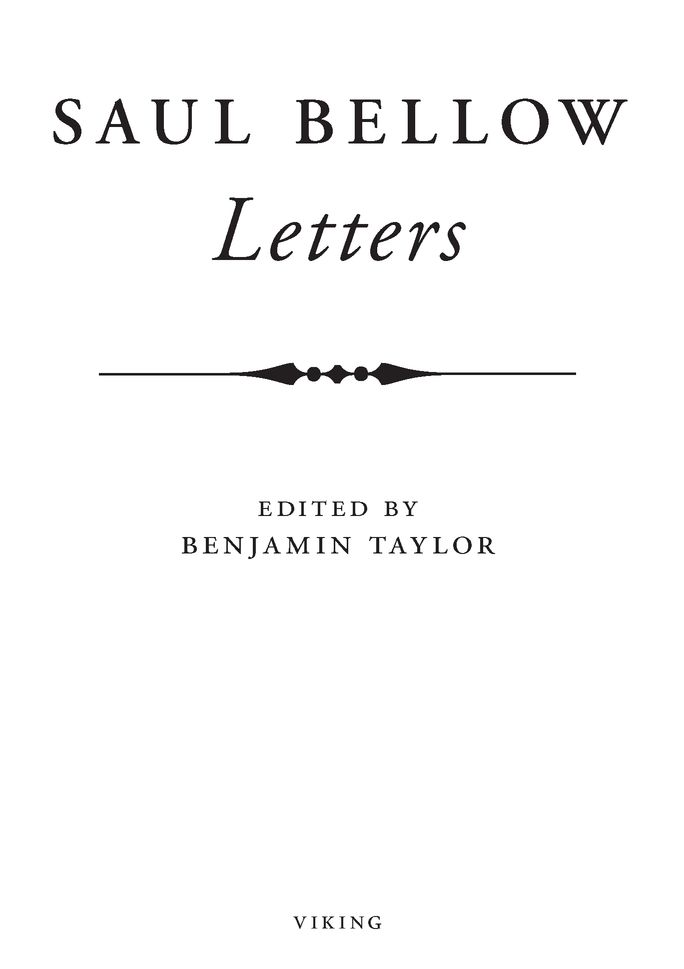Table of Contents
INTRODUCTION
This Caring or Believing or Love Alone Matters
When urged to write his autobiography, Saul Bellow used to say there was nothing to tell except that hed been unbearably busy ever since getting circumcised. Busy with the making of novels, stories and the occasional essay; with romance, marriage, fatherhood, divorce, friendship, enmity, grief; with the large-scale events of history and small-scale events of literary life; with the prodigious reading habit and dedication to teaching that saw him into his later eighties. Busy, not least, corresponding. The great authors are not all so good at letters; indeed, you could make a considerable list of figures of the first rank who were perfunctory correspondents. It would seem to be a separate gift, as mysterious as the artistic one. Looking over the best letter writers in our language of the last centuryVirginia Woolf, D. H. Lawrence, Hart Crane, Katherine Anne Porter, Evelyn Waugh, Samuel Beckett, John Cheever, William Maxwell, Elizabeth Bishop, Robert Lowell, Flannery OConnor, James Merrillone finds every sort of personality and no common denominator. Some kept diaries, others did not. Some were prolific, others produced relatively little. The most one can say is that each led a rich additional life in his or her correspondence, rich enough to have become a part of literature itself.
Four generationsthe one before him, his own, and the two followingare addressed in Bellows tremendous outflow, an exhaustive self-portrait that is, as well, the portrait of an age. His correspondents are a vast company including wives, sons, friends from childhood, fellow writers, current and former lovers, current and former students, admiring and disadmiring readers, acolytes asking him to read what theyd written (he nearly always did, it seems), religious crackpots, autograph hounds (hundreds), obsessive adulators, graphomaniacs and seriously insane people.
It will come as no surprise to readers of Bellows novels and stories that he can in his letters be instantly dramatic as well as very funny. Here are a few instances from the Alfred Kazin file. First, Paris, January of 1950: And of this I am sure: that he [Stendhal] would do as I do with his copy of Les Temps Modernes, that is, scan the latest sottises, observe with brutal contempt the newest wrinkle in anguish, and then feed Simones articles on sex to the cat to cure her of her heat and give the remainder to little G[regory] to cut dollies from; he cant read yet and lives happily in nature. And from Marthas Vineyard, summer 1964: Weve seen a bit of Island Society. Styron is our leader, here in little Fitzgeraldville. Then there is Lillian Hellman, in whom I produce symptoms of shyness. And Phil Rahv who keeps alive the traditions of Karl Marx. Im very fond of Philiphes mishpokheand he gives us a kind of private Chatauqua course in Hochpolitik from which I get great pleasure. Why cant we forgive each other before we become harmless? And from West Brattleboro, Vermont, summer 1983: That Ive become an unforthcoming correspondent is perfectly true; I take no pleasure in these silences of mine; rather, Im trying to discover the reasons why I so seldom reply. It may be that Im always out with a butterfly net trying to capture my mature and perfected form, which is just about to settle (once and for all) on a flower. It never does settle, it hasnt yet found its flower. That may be the full explanation.
Despite the comradely tenor of these excerpts, relations with Kazin were far from easy. Reading the file through, one encounters Bellow as often outraged as affectionate. Yet in the aftermath of renewed hostilities between them, he dispatched this in the summer of 1982:
Dear Alfred,
A happy birthday to you, and admiration and love and long lifeeverything. Never mind this and that, this and that dont matter much in the summing up.
Love from your junior by five days,
With others of his generation, relations were less volatile. John Cheever he loved, delighting in their differences of style and heritage. On both sides the letters are courtly, of the great-man-to-great-man kind, yet abundantly tender. Here is Bellows reply to Cheever, who had asked him to read page proofs of Falconer: Will I read your book? Would I accept a free trip to Xanadu with Helen of Troy as my valet? [... ] I have to go to New York this weekend, and also to Princeton to see my son Adam playing Antonio, the heavy in The Tempest. [... ] I would like to see you too, but dont know when I will be free from this mixture of glory and horror. (He had just won the Nobel.) Or his riposte, two years later, to Cheevers solicitation of names of writers to be honored by the American Academy of Arts and Letters: I perish of greed and envy at the sight of all these awards which didnt exist when we were young and mooching around New York. To Cheevers specific request for names of critics to honor, Bellow responds: There are no critics I could nominate for anything but crucifixion. And this, finally, written in December 1981, after he learned how gravely ill Cheever was: Since we spoke on the phone Ive been thinking incessantly about you. Many things might be said, but I wont say them, you can probably do without them. What I would like to tell you is this: We didnt spend much time together but there is a significant attachment between us. I suppose its in part because we practiced the same self-taught trade. Let me try to say it betterwe put our souls to the same kind of schooling, and its this esoteric training which we had the gall, under the hostile stare of exoteric America to persist in, that brings us together. Yes, there are other, deeper sympathies but Im too clumsy to get at them. Just now I can offer only whats available. [... ] When I read your collected stories I was moved to see the transformation taking place on the printed page. Theres nothing that counts really except this transforming action of the soul. I loved you for this. I loved you anyway, but for this especially.
Writing to Ralph Ellison, with whom he shared digs and the early struggle for recognition, he is larky, freewheeling. Here he writes from the University of Puerto Rico, where he was spending the spring term of 1961: I keep going [... ] and drift with the stray dogs and the lizards and wonder how many ways a banana leaf can split. The dog population is Asiaticwandering tribes of mongrels. They turn up in all the fashionable places, and in the modern university buildings, the cafeteriastherere always a few hounds sleeping in a cool classroom, and at night they howl and fight. But with one another, not with the rats, another huge population, reddish brown and fearless. You see them in vacant lots downtown, and at the exclusive tennis club at the seashore. I wont be surprised to see them at the crap table, watching the game. Then there is the mongoose clan. They eliminated the snakes, but now no one knows what to do about their raids on the chickens. So much for the zoology of this place. The island is beautiful. The towns stink. The crowds are aimless, cheerful, curious and gaudy. Drivers read at the wheel, they eat and they screw while driving.


